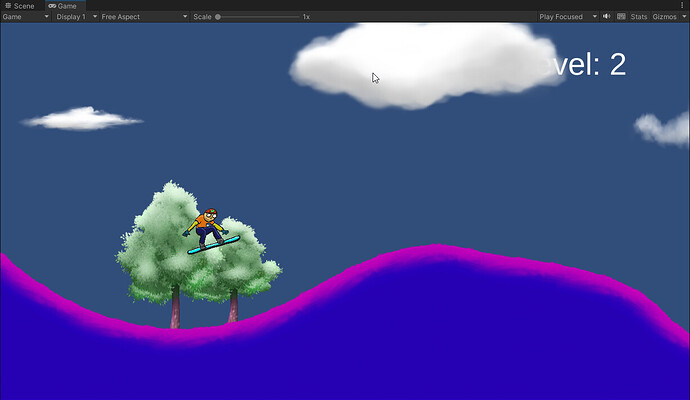I’ve been going through the section, and after tuning I introduced a leveling system on top of everything else with a level indicator that updates as you enter a new level. Of course completely independent of the number of scenes actually in the game.
I did this by modifying the LoadScene method in the FinishLine script:
void LoadScene()
{
// Get the actual number of scenes from the build settings
int sceneCount = SceneManager.sceneCountInBuildSettings;
Debug.Log(sceneCount + " Scenes"); // just verifying :)
level = SceneManager.GetActiveScene();
// Since buildIndex is 0 based, I want to check if the build index (0, 1,
// 2, etc.) is less than the scene count, which is 1 based, so I subtract
// 1 from the scene count.
if(level.buildIndex < (sceneCount - 1))
{
nextLevel = level.buildIndex+1;
}
else
{
nextLevel = 0;
}
SceneManager.LoadScene(nextLevel);
}
To display the Level indicator, I added a canvas with a TextMesh Pro object on it, and created a Level script:
using System.Collections;
using System.Collections.Generic;
using UnityEngine;
using UnityEngine.SceneManagement;
using TMPro;
public class Level : MonoBehaviour
{
public TMP_Text levelIndicator;
void Start()
{
Scene currentScene = SceneManager.GetActiveScene();
int currentLevel = currentScene.buildIndex + 1;
levelIndicator.text = "Level: " + currentLevel;
}
}
Here’s a screenshot of level 2, where I added an extra indicator of it being a new level by changing the SpriteShape color property.
I noticed the Level indicator was behind the clouds, but I kinda like it… So I’m leaving it there (for now at least). I might change that if I add scoring or a timer in the future.


